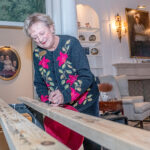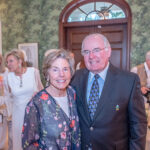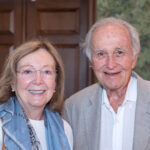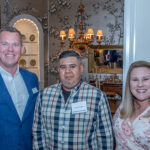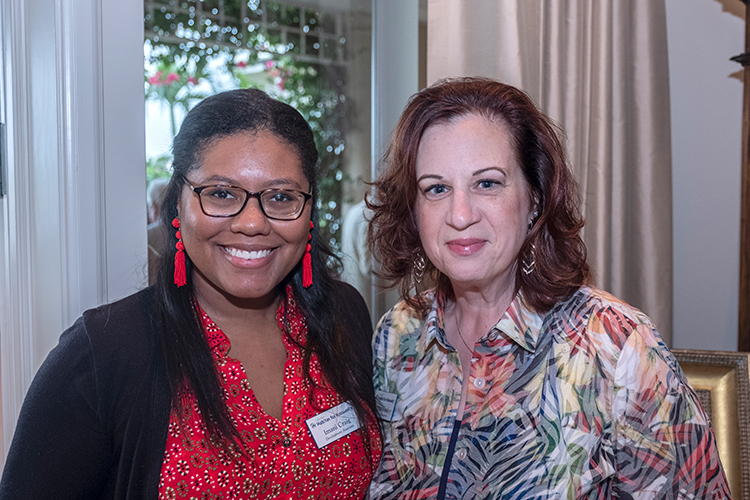
Orchid Island residents celebrated the community’s longtime relationship with Indian River Habitat for Humanity during a Garden Party at the home of Bill Locke. There couldn’t have been a more perfect setting than Locke’s lush lawn and gardens to raise a glass to the raising of the wall of the 27th Orchid-Habitat home.
Dressed in an array of floral attire and garden party whites, attendees anted up to benefit the Orchid Island Habitat Home Building fund. Instead of swinging hammers on Habitat job sites, they swung croquet balls on the lawn through wickets, although both are of an effort to help families build their dreams.
Since 2001, prompted initially by Mary and Mike Schwartz, Orchid Island residents have been assisting Habitat families to achieve their goal of homeownership.
“It makes a huge difference when we act as a community,” said John Morrow, Orchid Habitat chairperson. “This community makes a big difference in a lot of people’s lives.”
Stephanie Kingsbury, Habitat director of development, shared that Habitat homebuyer Armando Magallon and his family would soon be moving into their new home.
“Armando wanted to study medicine, and he had the aptitude to do that, but some people don’t have choices. He needed to quit school and go to work to support his family,” said Kingsbury.
“I don’t have the words to say how thankful I am. I’m just trying to raise my kids so they can have the dream that I never had. I want my kids to have the life I wish I could have had,” said Magallon.
Kingsbury said there have been extensive studies regarding the impact that housing has on education and health, especially in children.
“They now have a foundation from which to launch and for those children to be able to make the choices they want to make. The house gives them the foundation to do that,” said Kingsbury.
“Habitat doesn’t give anybody anything. The houses are not free. You have to work for them,” Morrow added, referencing that Habitat applicants are required to attend budget classes and complete sweat equity hours.
“This isn’t something that I’ve done for them, or that you’ve done for them, or that they’ve done for themselves. It is a partnership with all of us together,” said Trevor Loomis, IR Habitat CEO, explaining that the Habitat model relies on partnerships that build upon one another’s strengths.
“Habitat brings everybody together to do something meaningful, to create shelter and home. There’s nothing more fundamental to success than a home. And to create that opportunity for somebody where it didn’t exist before is truly amazing,” added Loomis.
For more information, visit IRCHabitat.org.
Photos by Joshua Kodis




